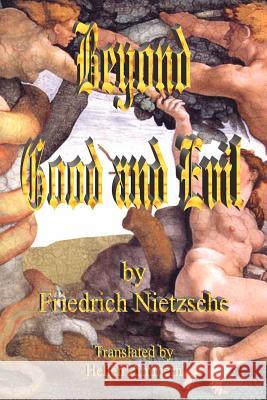Beyond Good and Evil » książka
Beyond Good and Evil
ISBN-13: 9781934255117 / Angielski / Miękka / 2007 / 176 str.
Beyond Good and Evil
ISBN-13: 9781934255117 / Angielski / Miękka / 2007 / 176 str.
(netto: 62,21 VAT: 5%)
Najniższa cena z 30 dni: 64,43
ok. 16-18 dni roboczych.
Darmowa dostawa!
Beyond Good and Evil is one of Nietzsche's most important works and, although it is relatively easy to read, it is one of the more difficult to fully grasp on a first reading. The thesis is, as the title alludes, that morality is ultimately relativistic - that right and wrong are not absolutes but are considerably flexible - and variable in different societies at all times. Although he qualifies his views as opinions rather than facts and asks his readers to examine his premises critically before agreeing with his views, Nietzsche leaves no doubt that he is confident that all previous philosophers were wrong about important precepts and he alone is right. His criticism of his immediate predecessors is somewhat more restrained than in some of his other works and directs his harshest criticism at Plato for his fabrications of "Pure Spirit and Transcendental Goodness." Nietzsche was fervently opposed the prevailing religious concepts of morality. His reputation as being anti-Christian was, and still is, sufficient grounds to inspire considerable criticism of his philosophy. As much as his critics might disagree with Nietzsche's philosophy, they cannot simply dismiss it. Nietzsche intelligence and persuasiveness make him a formidable figure in field of moral philosophy. His influence on modern philosophical theory is considerable and it is likely that his contributions will continue to inspire controversy for some time to come.











